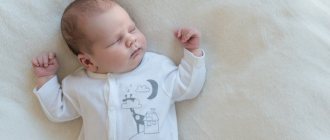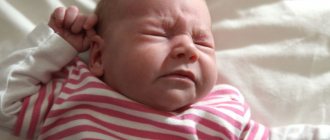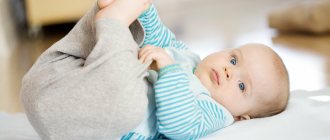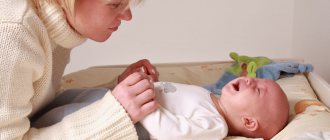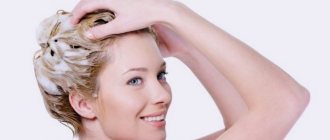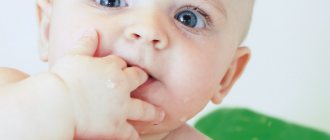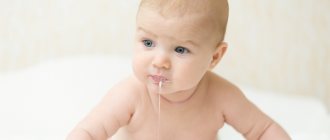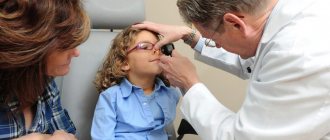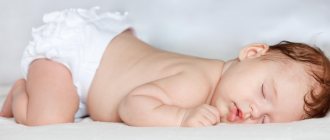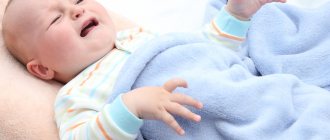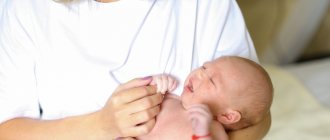Any deviations in the health of children are immediately reflected in their behavior. For example, if a child constantly scratches his head, attentive parents should definitely think about the reasons.
It is likely that the baby is simply lost in thought, puzzled, or captivated by the cartoon. In this case, his movements may be unconscious and involuntary. However, there can be a lot of options, and not all of them are so harmless. How to understand why a child scratches his head and what needs to be done in this or that case?
Why might your head itch?
There can be many reasons why a child regularly combs the skin under his hair. Here are just a few of them:
- Poor hair care, non-compliance with hygiene rules.
- Using shampoo that is not suitable for your hair type.
- Allergic reactions to shampoo components or food.
- Fungal infections of the scalp.
- Pediculosis.
- Vitamin deficiency, lack of minerals and nutrients.
- Stress.
- Malfunctions of internal organs.
- Disorders of lipid metabolism of the skin.
- Ticks.
- Behavioral problems.
There are other reasons, some of which we'll look at in more detail below.
Personal hygiene
One of the most harmless situations in which a child scratches his head is a violation of personal hygiene rules. This does not mean at all that your baby is dirty. Even with regular water procedures, a child may simply not rinse off the shampoo well enough or not wash away the dirt very thoroughly.
This situation can cause inflammation of the hair follicles, which is manifested by noticeable itching. It also happens that shampoo is simply not suitable for a child. It turns out to be a vicious circle: the more the mother washes the baby’s hair, the more it itches.
Treatment in this case will be very simple. It is enough just to change the shampoo, wash your hair regularly and make sure that your child washes his hair thoroughly.
Pediculosis
Another common reason that a child scratches his head can be the notorious lice. Unfortunately, lice is a highly contagious disease. It is enough just to play next to the patient in the same sandbox or sit at the same desk.
Long gone are the days when you got rid of uninvited “guests” using kerosene or smelly dust soap. Modern drugs are readily available, easy to use and smell pleasant. Among the popular ones are “Para Plus”, “Pedikulen” or “Nittifor”. Just 1-2 treatments, and the lice will leave your child's head.
But at the same time, you should definitely treat the heads of all family members, boil and iron all bedding and clothing on both sides.
Allergic reaction
When a child scratches his head behind the ears, he may have an allergic reaction to some food. In this case, redness or rashes will not necessarily be observed. The scalp is much denser than other parts of the body, so rashes here may appear later.
To fix the problem, try to find its source. Think, perhaps you purchased a new shampoo or washing powder? Have you given your child new foods? Have you treated any disease with unusual medications?
As soon as the cause is established, eliminate the effect of the allergen and after a while the situation will improve.
Bad habit or neurosis
Sometimes a child scratches his head, just trying to attract attention. And in some cases it turns into a bad habit. The baby unconsciously scratches the top of his head without even noticing it.
The situation is much worse when “pruritus” is a consequence of neurosis. Watch your baby carefully. You may notice other symptoms:
- changing habits;
- refusal to eat;
- depressed mood;
- problems with pronunciation;
- changes in behavior;
- frequent headaches for no apparent reason;
- sleep disorders.
If you find anything like this, it is best to seek advice from a psychologist. A good specialist will help the child talk and find out the cause of mental anguish.
Diagnosis of nasal congestion
There is a large list of serious diseases that can be signaled by nasal congestion without a runny nose. Be careful with self-medication; first of all, we recommend that you consult a qualified specialist.
Home diagnostic methods depend on the specific disease.
| Symptoms, method of diagnosis | Disease |
| If after using vasoconstrictor drops there is no relief in breathing within 15 minutes | Drug-induced rhinitis |
| Difficulty breathing in one nostril. Lie on your side, after 15 minutes turn over to the other side. The congestion of the nostril (the one located above) does not go away, one-sided difficulty breathing is observed | Trauma, abnormal septum, or presence of a foreign object |
| Nasal congestion, swelling of the nasopharynx, weakness and high temperature | Infectious rhinitis |
| Difficulty breathing, sneezing, pain in the eyes, if a person enters a certain room, upon contact with certain substances | Allergic reaction |
| Vasoconstrictor drops have no effect, headache | Polyp formation |
| Difficulty breathing without ARVI symptoms in adolescent girls, pregnant women and women on the eve of menopause | Vasomotor rhinitis |
| Dry cough and inflammation of the throat mucosa without a runny nose | Sore throat, pharyngitis and other inflammatory diseases |
| Inhalation is accompanied by whistling, unpleasant sensations of sore throat, change in voice | Posterior rhinitis |
| Difficulty breathing is accompanied by shortness of breath, swelling, cough, headaches | Diseases of the cardiovascular system |
| Mouth breathing in infants, loud snoring | Physiological feature of newborns |
Other diagnostic methods require test results, so they must be carried out under the supervision of a specialist. Even if the cause of difficulty breathing has been established independently, the assumption must be confirmed by an ENT specialist. Otherwise, incorrect therapy can lead to a serious deterioration in the patient’s condition.
When contacting an ENT specialist, you will conduct a comprehensive examination, allowing you to determine the cause of the disease with a high degree of probability. At the first appointment, the patient is examined using an endoscope to detect foreign bodies in the nasal passages.
Then the doctor can prescribe laboratory tests - various tests, smears, bacteriological culture. After analyzing all the results, the ENT specialist will make a diagnosis. If necessary, additional ultrasound and x-rays are prescribed.
Psoriasis
If your child scratches his head frequently, he may have psoriasis. The first manifestations of this disease often appear on the back of the head. Outwardly, this may look like slight peeling of areas of the skin. Over time, the peeling becomes more noticeable, irritation and quite severe itching appear. Reddish spots may also appear on the knees and elbows.
Unfortunately, scientists have not fully figured out what triggers the onset of this disease and how to treat it. Psoriasis is not an infectious pathology. But it is not yet possible to cure it completely. The doctor will prescribe medications that improve the condition of the skin and detoxify the body. In severe situations, treatment is carried out with corticosteroids.
Scalp diseases in children
Ringworm is caused by microsporia fungi.
If a child constantly scratches his head, it is necessary to exclude external factors. Common reasons include violation of hygiene rules and the use of low-quality cosmetics when bathing. Some shampoos contain aggressive components that disrupt the balance of the epidermis, leading to dryness, dandruff and itching. The skin does not produce enough sebaceous secretion, so frequent washing can worsen the condition and reduce local immunity.
Possible reasons why a child scratches his head until it hurts:
- Psoriasis. In rare cases, its first manifestations occur at the age of 5-7 years. A severe, chronic disease begins with skin lesions on the back of the head. It provokes itching, which can intensify after active play, stress, or quarrels. The pathology requires a systematic approach to treatment; it can be aggravated by poor nutrition or contact with allergens.
- Microsporia. Ringworm occurs when an infection occurs with a fungus that penetrates the top layer of the epidermis. Large round spots form on the head. Hair may fall out inside the formations, and white or scaly crusts may appear. Burning and itching cause active scratching until blood bleeds.
- Skin imbalance. Increasingly, itching and dandruff are a consequence of the wrong choice of bed linen and the use of pillows with synthetic filling. A change in pH level on the surface of the epidermis provokes overheating of the baby, daily hair washing, and the use of gels and mousses for adults when dancing.
A psoriatic plaque on a child’s head causes unbearable itching.
If a child scratches his head mainly in his sleep, you should consult a pediatrician. In the initial stage of rickets, children actively sweat at night, wake up, and may cry. Characteristic bald patches begin to form in the back of the head.
Sometimes the cause is hidden in neurological disorders. If a child often scratches his head before bed, parents should pay attention to the child’s emotional state. The reason for a visit to a neurologist should be:
- disturbing sleep with frequent awakenings, nightmares;
- decreased activity, poor grades in school;
- isolation;
- tantrums for no reason.
As neuroses progress, the child tries to scratch his face or chest when he is worried. The skin on the body begins to itch, and dry spots may appear on the elbows.
Metabolic disease
This is a fairly serious disruption in the child’s body. Most often, a slowdown in metabolism is the result of a sedentary lifestyle and poor diet. Excess weight forces the sweat and sebaceous glands to work harder. Increased sweating provokes the proliferation of opportunistic microflora and causes irritation on the skin.
Often the head begins to actively itch during puberty. This is due to the accelerated production of hormones and a sharp increase in oiliness of the scalp. The best way out is to show the child to an endocrinologist and rationalize nutrition.
Possible reasons
The following are the most common causes of itching and flaking in newborns, infants and older children.
Allergy
The most common cause of itching on the head is allergic reactions to chemicals that enter the body due to the effects of shampoos or medications on the scalp.
A common case is when a child changes shampoo or shower gel and an itching problem arises. Pustules, pimples or rashes may appear on the skin.
Try returning to using your previous products, wait a while (if there are no additional problems with itching) and monitor the result.
Important! An allergic reaction will cause scalp disease only if the problem is in the substance with which the person washes his hair. Otherwise, the itching would spread throughout the body rather than be local.
Skin diseases
At the initial stages of infection, slight redness will be noticed, the itching will not be severe, but will subsequently intensify. It is better to take immediate action and go to the hospital for examination. Possible problems:
- psoriasis;
- dermatitis;
- microsporia.
Psoriasis can be noticed by slight peeling of the skin that occurs locally in certain areas and not everywhere. The most vulnerable part is the back of the head. If you do not notice the disease in time, the flaky area will become itchy and red.
Sometimes, as the disease develops, invisible spots appear on the child’s knees and elbows.
The cause of the disease has not been definitively identified, but the main one is genetic predisposition, and aggravating factors include:
- constant stress;
- the emergence of other infectious diseases;
- unstable hormones (during puberty);
- unfavorable home environment;
- scalp damage.
Psoriasis is not an infectious disease, so it cannot be completely cured , but you can easily alleviate the disease to such an extent that it does not manifest itself. In this case, potent drugs are often prescribed, which can only be purchased with a prescription from the attending physician. An examination by a trichologist is necessary.
The main symptom that is easy to notice with dermatitis is a copious amount of dandruff. Dermatitis affects a large number of adolescents - about 30% of all children suffer from this disease.
Vitamin D, special medicated shampoos (purchased at the pharmacy), immunostimulants and proper nutrition prepared by doctors help to cope with the disease. Another cause of dermatitis is stress. It should be avoided, and if this does not work, then take sedatives or antidepressants.
Important! Do not ignore possible stress problems in your child. It is a mistaken belief that he should not take antidepressants, and even worse when parents believe that the child cannot have stress.
Microsporia (ringworm) is accompanied by patches of baldness , which makes the disease recognizable and noticeable. The cause is a viral fungus that can be contracted from animals or their fur.
These anthropophilic fungi are transmitted from child to child, which can lead to epidemic proportions within a preschool or school setting. You can also become infected with them if you often mess around in dirty soil contaminated with pathogenic spores (public places).
The first sign that the disease continues to take hold of the body is the appearance of red spots in the eyelashes and eyebrows. In case of ringworm, one of the following medications must be used:
- Ketoconazole or Griseofulfin;
- Clotrimazole in the form of an ointment;
- Special shampoos (Nizoral);
- Suprastin or Loritadine.
Substance imbalance
This happens quite often among teenagers who actively experiment with hairstyles. Various dyes or bleaches harm not only the hair, but also the skin. Most often, the fat balance is disturbed in adolescents, because they are more vulnerable to the effects of chemicals.
In young children, the disease can occur due to the fact that they lie with the back of their head on the pillow, and they sweat profusely during sleep. In this situation, daily hair washing is required.
Sometimes dry scalp becomes a problem, which is difficult to get rid of. People make a mistake when they start washing their hair every day. In this case, fat is produced even more and causes more harm. It is necessary to use a complex of mineral substances (for example, in the form of shampoo), carry out procedures and preferably visit a dermatologist. The shampoo should be specifically for dry skin.
Pediculosis (lice)
The appearance and development of pediculosis is monitored in all government agencies. After all, an infected child should not have contact with others. Treatment should be for the whole family.
If there is a disease, then you can clean out insects (lice) yourself using an ordinary comb, but their eggs will remain on the skin.
Buying conventional ointments and aerosols also does not give a 100% result, which is why some parents use traditional methods.
In practice, there have been cases when kerosene was used, but it did not lead to anything good - severe burns appeared, which are more difficult to get rid of than lice. Therefore, you should not use drugs whose benefits have not been confirmed by doctors.
For treatment you will need:
- carefully iron all the things of the child and family;
- use special medications: Nittifor, Para Plus aerosol or Pediculen until the pests die completely.
Dermatitis
The cause of severe itching of the scalp may be seborrheic dermatitis or the well-known dandruff. Teenagers especially often suffer from this disease. This is one of the manifestations of puberty.
Parents need to understand that dandruff will not go away on its own. Most likely, advertised shampoos will not help either. They remove only the tip of the iceberg, while the hidden cause of the disease remains unclear.
Treating dandruff involves more than just using medicated shampoos. The doctor will adjust your diet, prescribe immunomodulators and probably recommend sunbathing. If the disease is the result of stress, it is possible to prescribe antidepressants or sedatives.
Demodicosis
This is another disease in which the child scratches his head a lot. The cause of this may be demodex mites or glandular acne. The disease is contagious and it is better to limit close contact with the patient. Most often, the tick affects those whose immunity leaves much to be desired.
In this case, only a doctor can select the correct treatment. Symptoms may include:
- At first, itching appears in certain places;
- acne appears, the skin turns red;
- hairs fall out;
- severe peeling appears in places of greatest damage;
- It may cause pain in the eyes.
Interestingly, the itchy area does not grow. New ones just appear with the same signs, the scalp literally becomes covered with spots. It is very important not to let your child scratch the lesions and carefully follow the doctor's instructions.
Causes of lice infection
Until recently, it was believed that lice could only be found on the head of a child from a dysfunctional family, and many mothers are sincerely surprised how their clean and tidy baby suddenly got these parasites. In fact, the causes of lice are trivial - close contact with an already infected child and the use of common household items (towel, hat, comb, etc.). During close contact, lice simply crawl from one head to another and already on a “fresh” child begin to lead an active life. Such close contact is possible in large groups of children (kindergarten, sanatorium, school), as well as on playgrounds, at parties and at children's parties.
Lipid imbalance
If a 2-year-old child scratches his head and no apparent reason is found, he may be sleeping on a pillow made of synthetic material. If this is the case, simply replace the bedding.
If a small child is constantly in contact with synthetics, he may experience problems with lipid metabolism in the scalp. The back of the baby's head constantly sweats, and on the contrary, the hairs dry out, become electrified and split.
In this case, the doctor may prescribe a vitamin-mineral complex, advise replacing the pillow and pillowcase with natural ones, and select moisturizing products for the hair.
Ringworm
If a small child constantly scratches his head, it is likely that he has had close contact with a barn cat. The disease in this case is provoked by a rather dangerous fungus. It quickly takes root in the body of young children and people suffering from immune disorders. So if your child is scratching his head, examine him carefully. The symptoms are very eloquent:
- the affected areas are very itchy and have rounded outlines;
- hair thins, breaks or falls out altogether;
- redness and significant peeling appear.
If you find bald spots on your child's head, you should immediately run to a dermatologist. The disease itself will definitely not go away. Moreover, other family members can also get sick.
Fungal diseases occur much more often in children than in adults. This is due to the fact that the sebaceous glands of babies are not yet able to produce acids that prevent the fungus from penetrating the skin. And kids communicate more with sick animals.
Symptoms of lice
The first and perhaps the most well-known sign of lice is severe itching of the scalp. The child constantly scratches the back of his head and temples, his sleep is disturbed, his mood deteriorates, and the baby becomes capricious and whiny.
Inspections for head lice in kindergartens and schools are carried out regularly, at least once a week, but parents themselves should periodically carry out the same procedure. This is easy to do: sit the child on a chair under bright light and begin to part the hair with a comb. Lice, contrary to popular belief, cannot jump/fly - they only crawl and lay eggs (larvae), from which new insects will soon hatch. Such eggs are attached to the hair, look like dandruff, are very difficult to remove and are called nits.
After lice are discovered, the child must be isolated from society, and the child care facility must be informed about the situation so that medical workers can take measures to sanitize it.
More detailed information about what symptoms indicate lice and how to remove lice and nits from a child can be obtained on our website https://www.dobrobut.com/.
Preventive measures
In order for a child to stop constantly scratching his head, the cause should be eliminated as quickly as possible and existing diseases should be cured. But even after the situation has returned to normal, regular prevention of skin lesions should be carried out. Moreover, doing this is not so difficult:
- The child's head should be washed regularly and very thoroughly.
- It is necessary to select gentle detergents that suit his age and hair type.
- When washing, it is important to use only special children's products.
- It is necessary to comb the hair only with his own comb, and it is very important to convey your requirement to the teachers.
- It is important to wash and iron children's bedding, towels and hats regularly.
- It is necessary to ensure that the child’s head comes into contact only with natural materials.
- During walks, it is necessary to constantly monitor the baby and stop attempts to play with sick animals.
Preventive measures can also include a balanced diet, taking multivitamins, and regular sunbathing. And if problems are discovered, you should not let the situation take its course. Timely consultation with a specialist will help improve the situation and avoid additional problems.
Prevention of diseases in children
The child’s immunity plays an important role in resisting pathogenic microflora.
Itchy skin exhausts the child, leads to nervousness, memory loss and sleep disturbances. Following simple rules for parents helps prevent complications:
- choose shampoo depending on age;
- do not use cosmetics with aggressive composition;
- purchase bed linen and clothing made from natural fabrics;
- regularly give vitamin complexes;
- strengthen the baby's immunity.
From infancy, it is necessary to purchase personal hygiene items for the baby and monitor their cleanliness. In case of an outbreak of head lice, special preventative sprays can be used.
